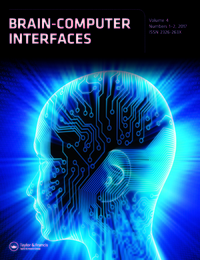The ultimate goal of brain-computer-interface (BCI) research on speech restoration is to develop devices which will be able to reconstruct spontaneous, naturally spoken language from the underlying neuronal signals. From this it follows that thorough understanding of brain activity and its functional dynamics during real-world speech will be required. Here, we review current developments in intracranial neurolinguistic and BCI research on speech production under increasingly naturalistic conditions. With an example of neurolinguistic data from our ongoing research, we illustrate the plausibility of neurolinguistic investigations in non-experimental, out-of-the-lab conditions of speech production. We argue that interdisciplinary endeavors at the interface of neuroscience and linguistics can provide valuable insight into the functional significance of speech-related neuronal data. Finally, we anticipate that work with neurolinguistic corpora composed of real-world language samples and simultaneous neuronal recordings, together with machine-learning methodology accounting for the specifics of the neurolinguistic material, will improve the functionality of speech BCIs.

41
Views
0
CrossRef citations
0
Altmetric
Original Articles
Neurolinguistic and machine-learning perspectives on direct speech BCIs for restoration of naturalistic communication
Olga Iljina GRK 1624 ‘Frequency effects in language’, University of Freiburg, Freiburg, Germany; Department of German Linguistics, University of Freiburg, Freiburg, Germany; Hermann Paul School of Linguistics, University of Freiburg, Germany; BrainLinks-BrainTools, University of Freiburg, Freiburg, Germany; Neurobiology and Biophysics, Faculty of Biology, University of Freiburg, Freiburg, Germany; Translational Neurotechnology Lab, Department of Neurosurgery, University Medical Center Freiburg, Faculty of Medicine, University of Freiburg, Freiburg, GermanyCorrespondenceolga.iljina@uniklinik-freiburg.de
, Johanna Derix BrainLinks-BrainTools, University of Freiburg, Freiburg, Germany; Translational Neurotechnology Lab, Department of Neurosurgery, University Medical Center Freiburg, Faculty of Medicine, University of Freiburg, Freiburg, Germany, Robin Tibor Schirrmeister BrainLinks-BrainTools, University of Freiburg, Freiburg, Germany; Translational Neurotechnology Lab, Department of Neurosurgery, University Medical Center Freiburg, Faculty of Medicine, University of Freiburg, Freiburg, Germany, Andreas Schulze-Bonhage Epilepsy Center, Department of Neurosurgery, University Medical Center Freiburg, Faculty of Medicine, University of Freiburg, Freiburg, Germany; BrainLinks-BrainTools, University of Freiburg, Freiburg, Germany, Peter Auer GRK 1624 ‘Frequency effects in language’, University of Freiburg, Freiburg, Germany; Department of German Linguistics, University of Freiburg, Freiburg, Germany; Hermann Paul School of Linguistics, University of Freiburg, Germany; Freiburg Institute for Advanced Studies (FRIAS), University of Freiburg, Freiburg, Germany, Ad Aertsen Neurobiology and Biophysics, Faculty of Biology, University of Freiburg, Freiburg, Germany; Bernstein Center Freiburg, University of Freiburg, Germany & Tonio Ball BrainLinks-BrainTools, University of Freiburg, Freiburg, Germany; Translational Neurotechnology Lab, Department of Neurosurgery, University Medical Center Freiburg, Faculty of Medicine, University of Freiburg, Freiburg, Germany show all
, Johanna Derix BrainLinks-BrainTools, University of Freiburg, Freiburg, Germany; Translational Neurotechnology Lab, Department of Neurosurgery, University Medical Center Freiburg, Faculty of Medicine, University of Freiburg, Freiburg, Germany, Robin Tibor Schirrmeister BrainLinks-BrainTools, University of Freiburg, Freiburg, Germany; Translational Neurotechnology Lab, Department of Neurosurgery, University Medical Center Freiburg, Faculty of Medicine, University of Freiburg, Freiburg, Germany, Andreas Schulze-Bonhage Epilepsy Center, Department of Neurosurgery, University Medical Center Freiburg, Faculty of Medicine, University of Freiburg, Freiburg, Germany; BrainLinks-BrainTools, University of Freiburg, Freiburg, Germany, Peter Auer GRK 1624 ‘Frequency effects in language’, University of Freiburg, Freiburg, Germany; Department of German Linguistics, University of Freiburg, Freiburg, Germany; Hermann Paul School of Linguistics, University of Freiburg, Germany; Freiburg Institute for Advanced Studies (FRIAS), University of Freiburg, Freiburg, Germany, Ad Aertsen Neurobiology and Biophysics, Faculty of Biology, University of Freiburg, Freiburg, Germany; Bernstein Center Freiburg, University of Freiburg, Germany & Tonio Ball BrainLinks-BrainTools, University of Freiburg, Freiburg, Germany; Translational Neurotechnology Lab, Department of Neurosurgery, University Medical Center Freiburg, Faculty of Medicine, University of Freiburg, Freiburg, Germany show all
Pages 1-14 | Received 02 Aug 2016, Accepted 11 May 2017, Published online: 21 Jun 2017
Pages 1-14
Received 02 Aug 2016
Accepted 11 May 2017
Published online: 21 Jun 2017



